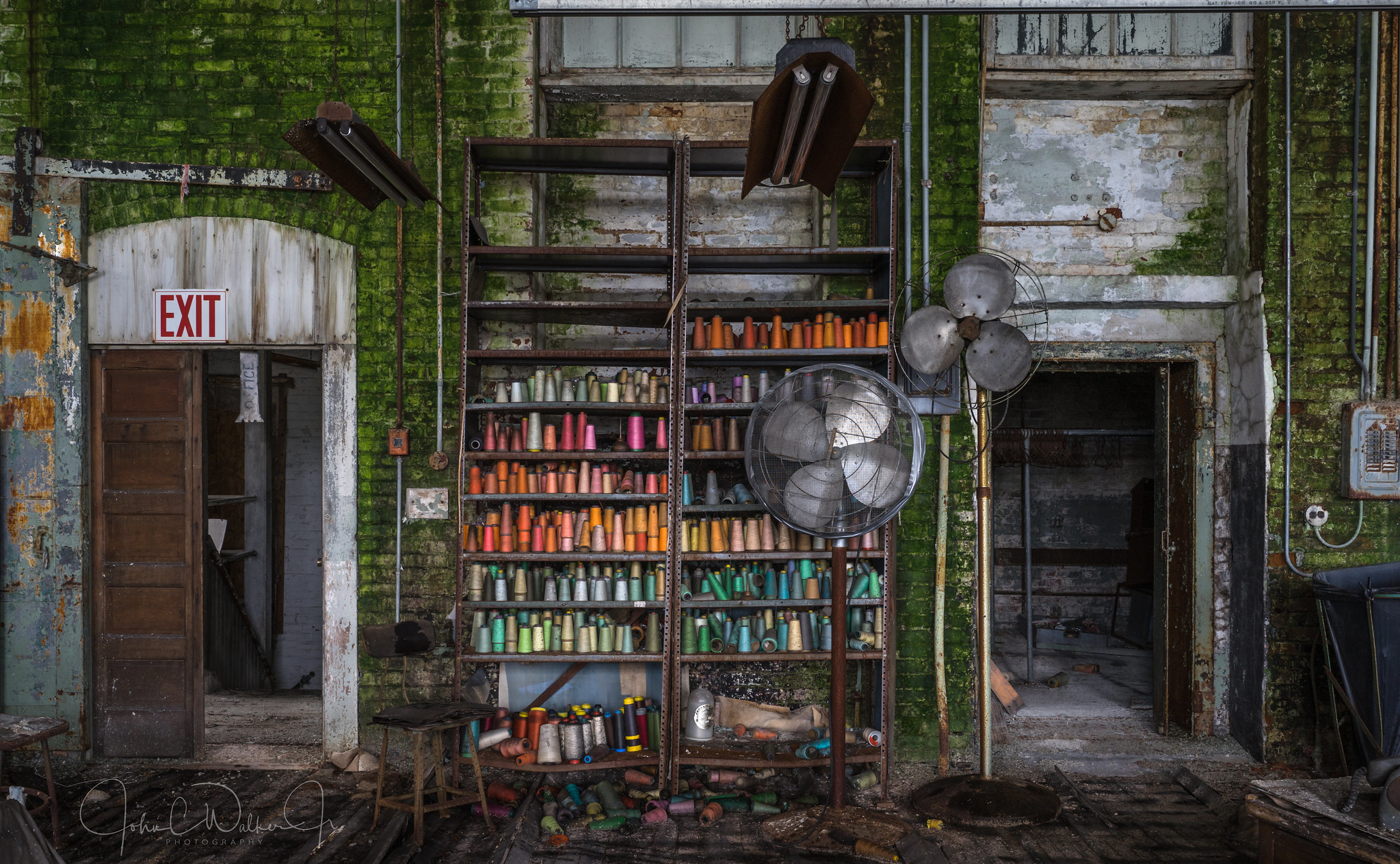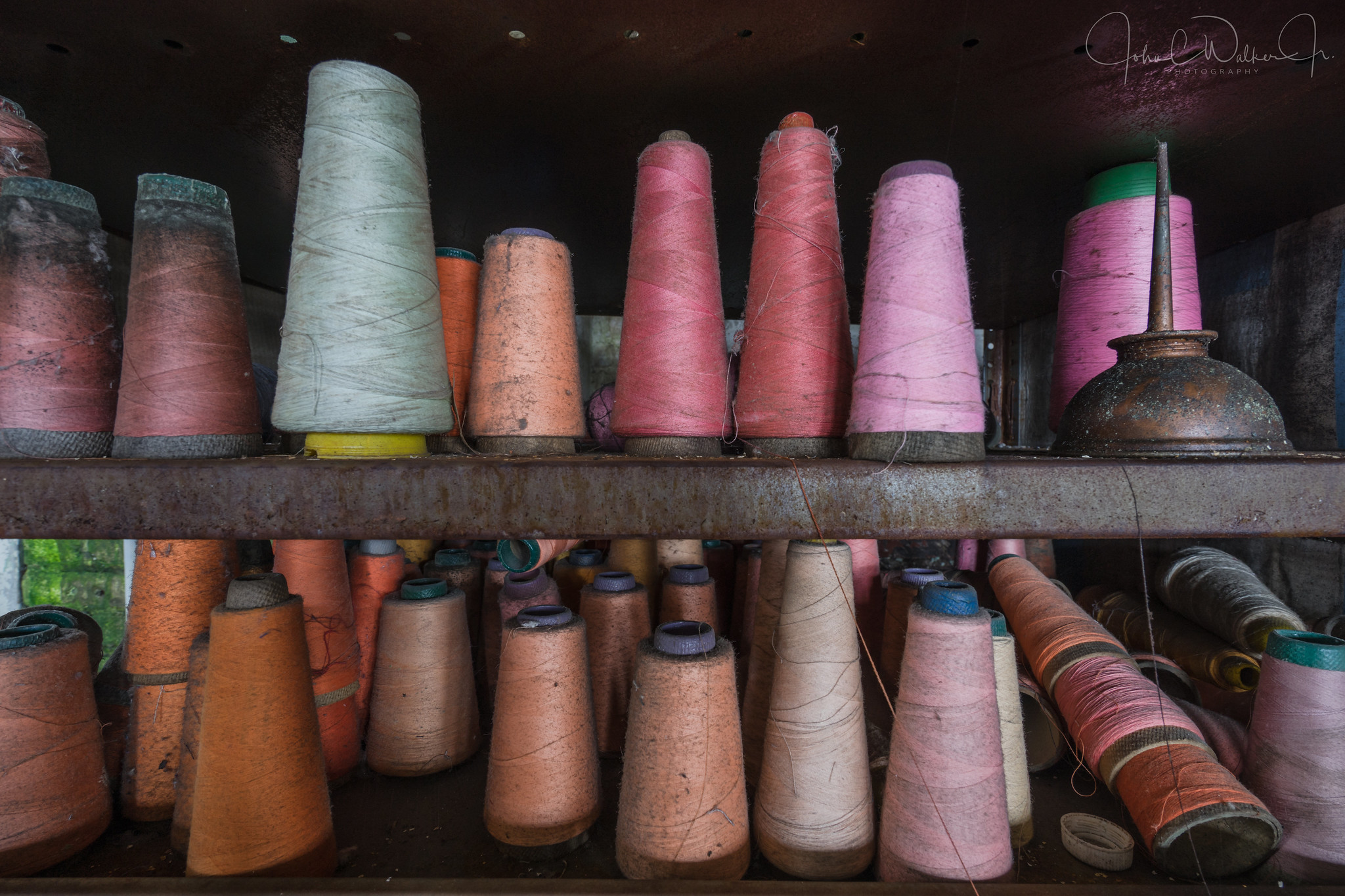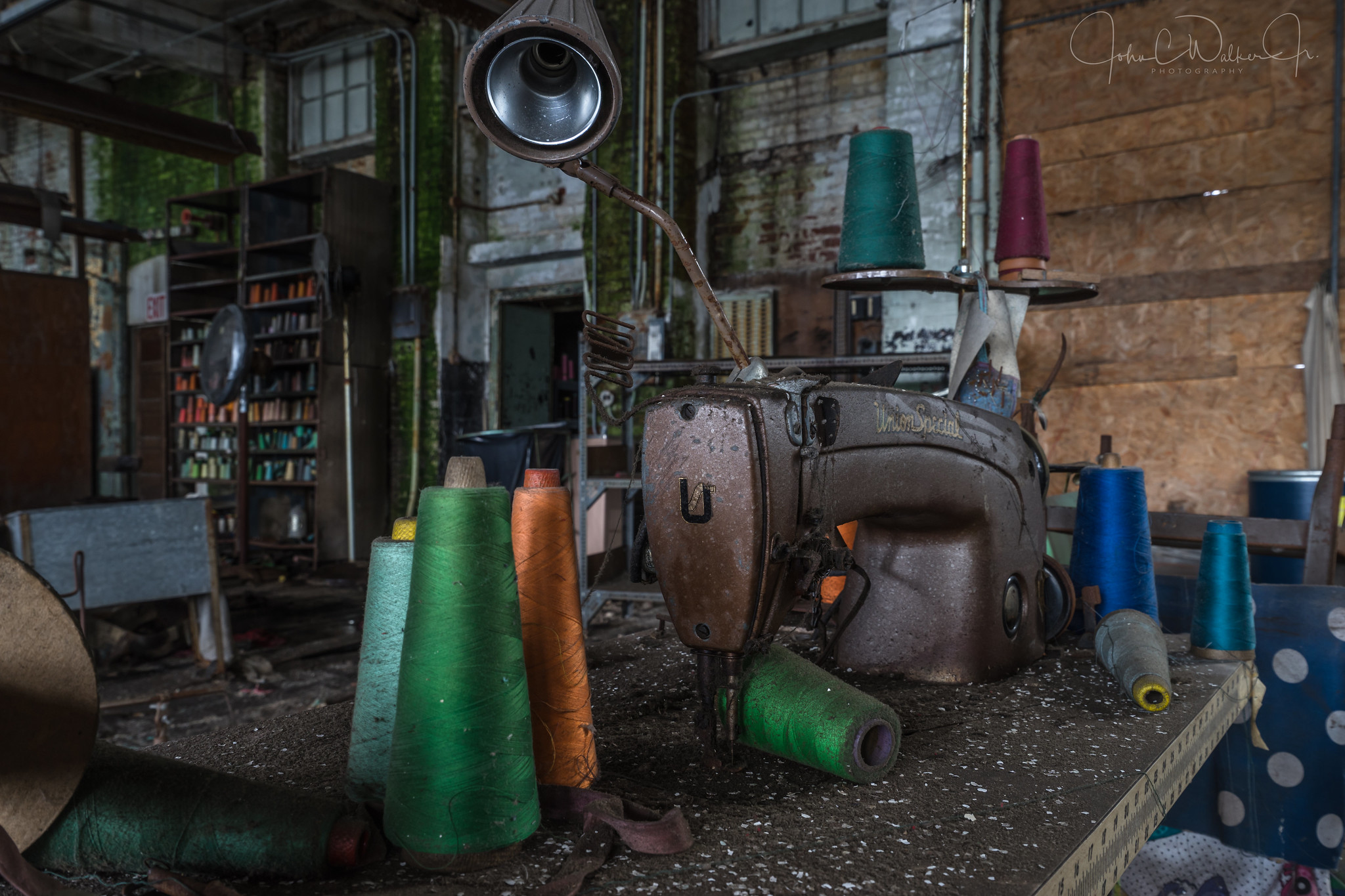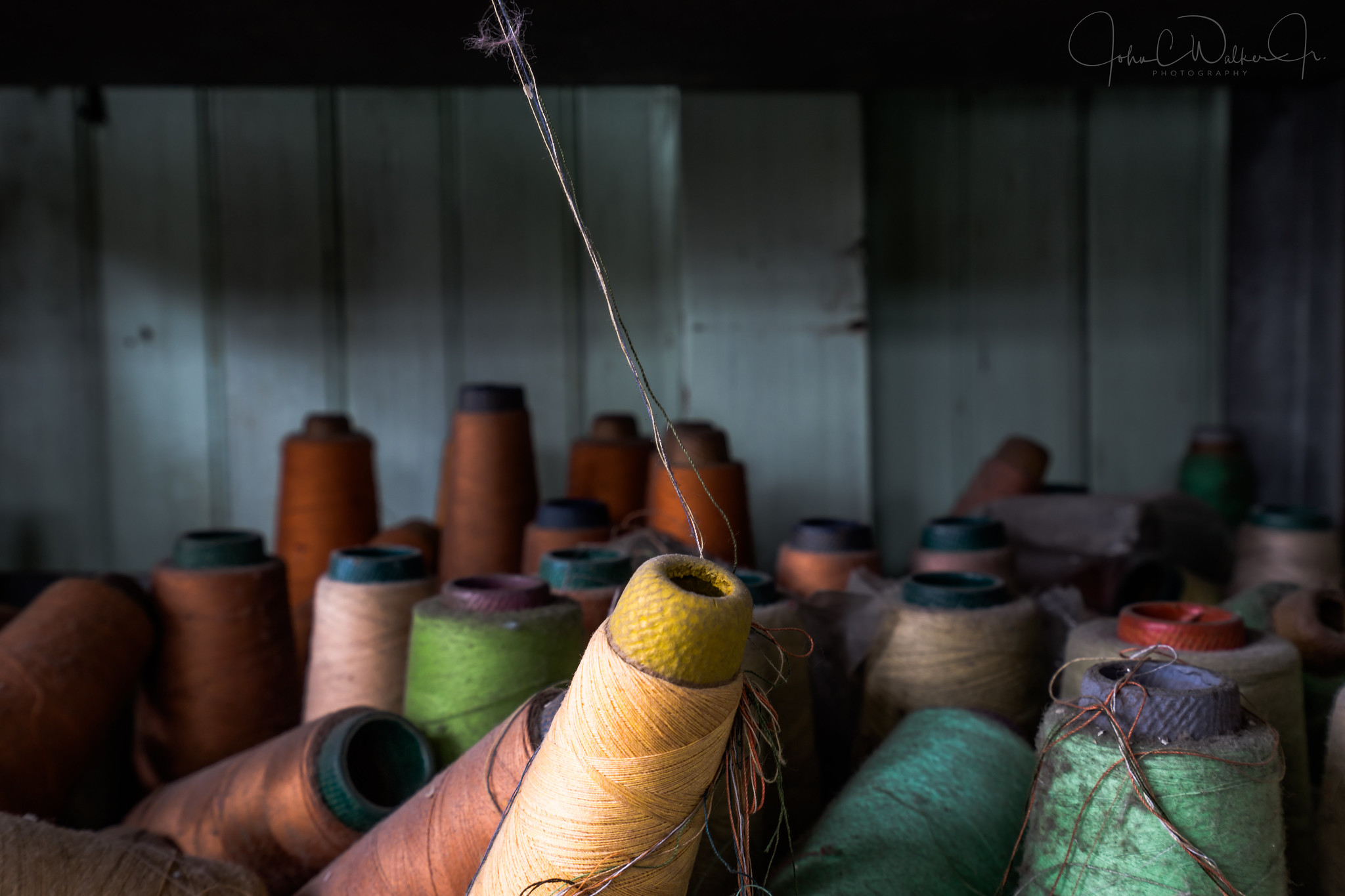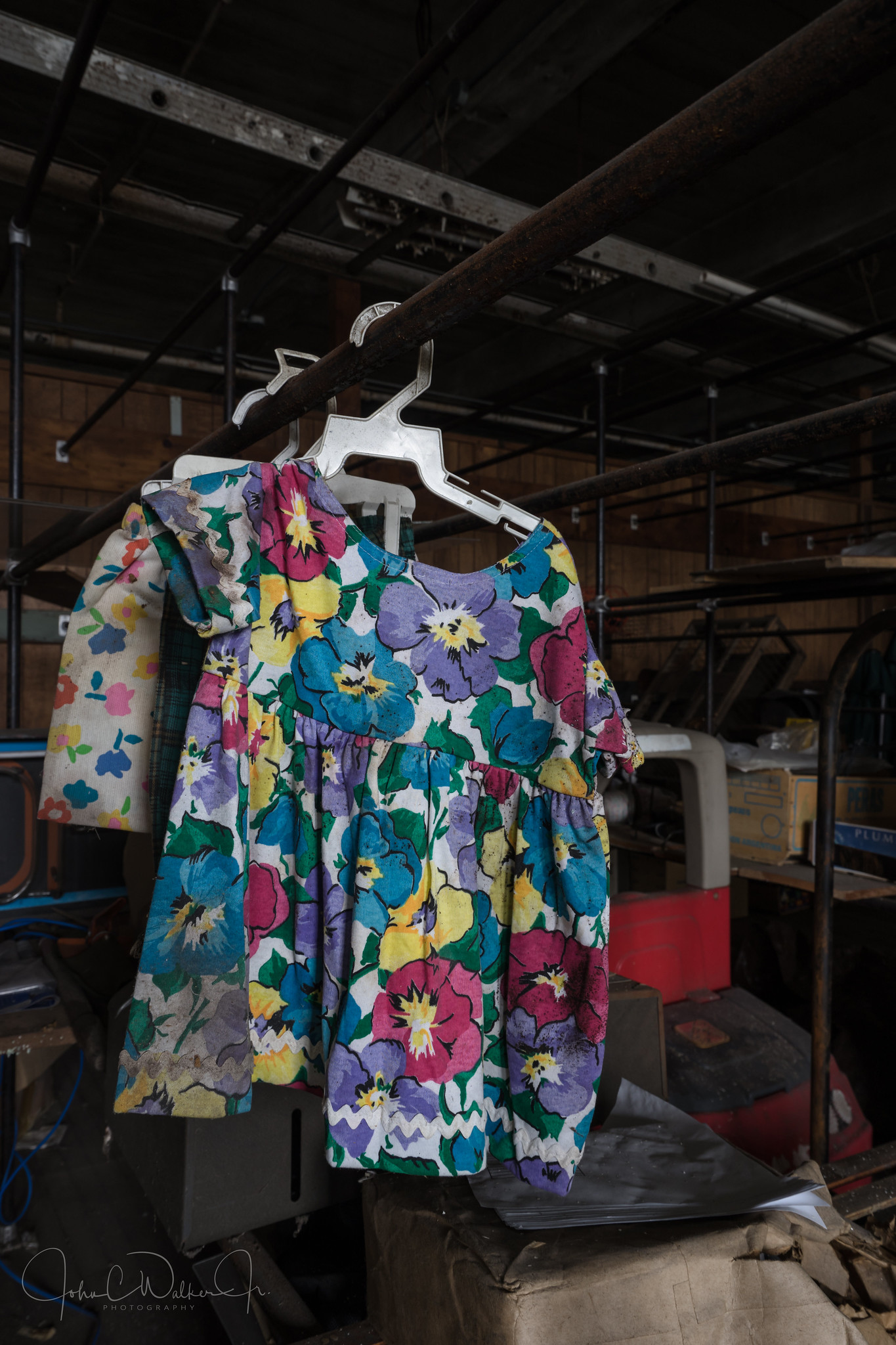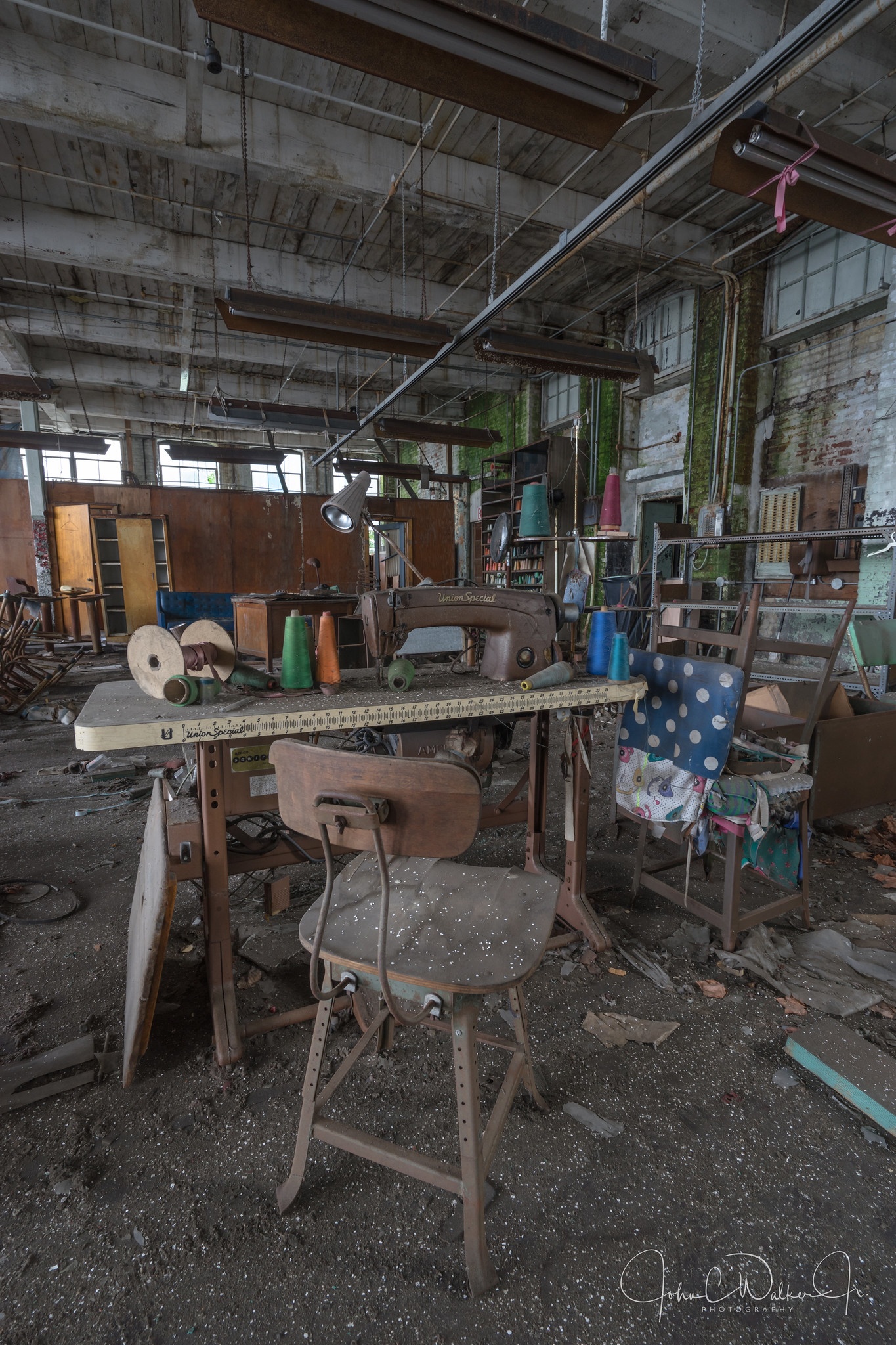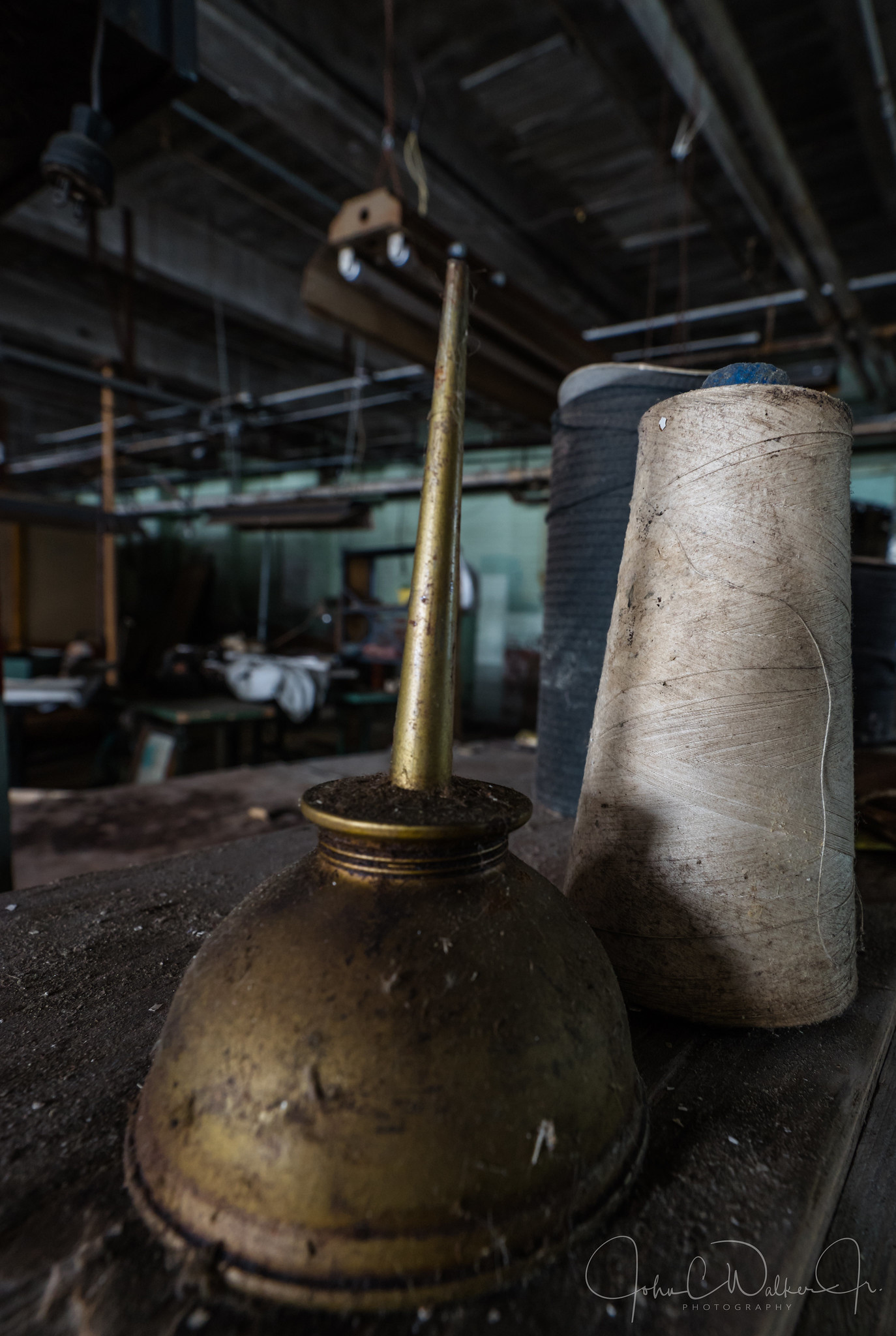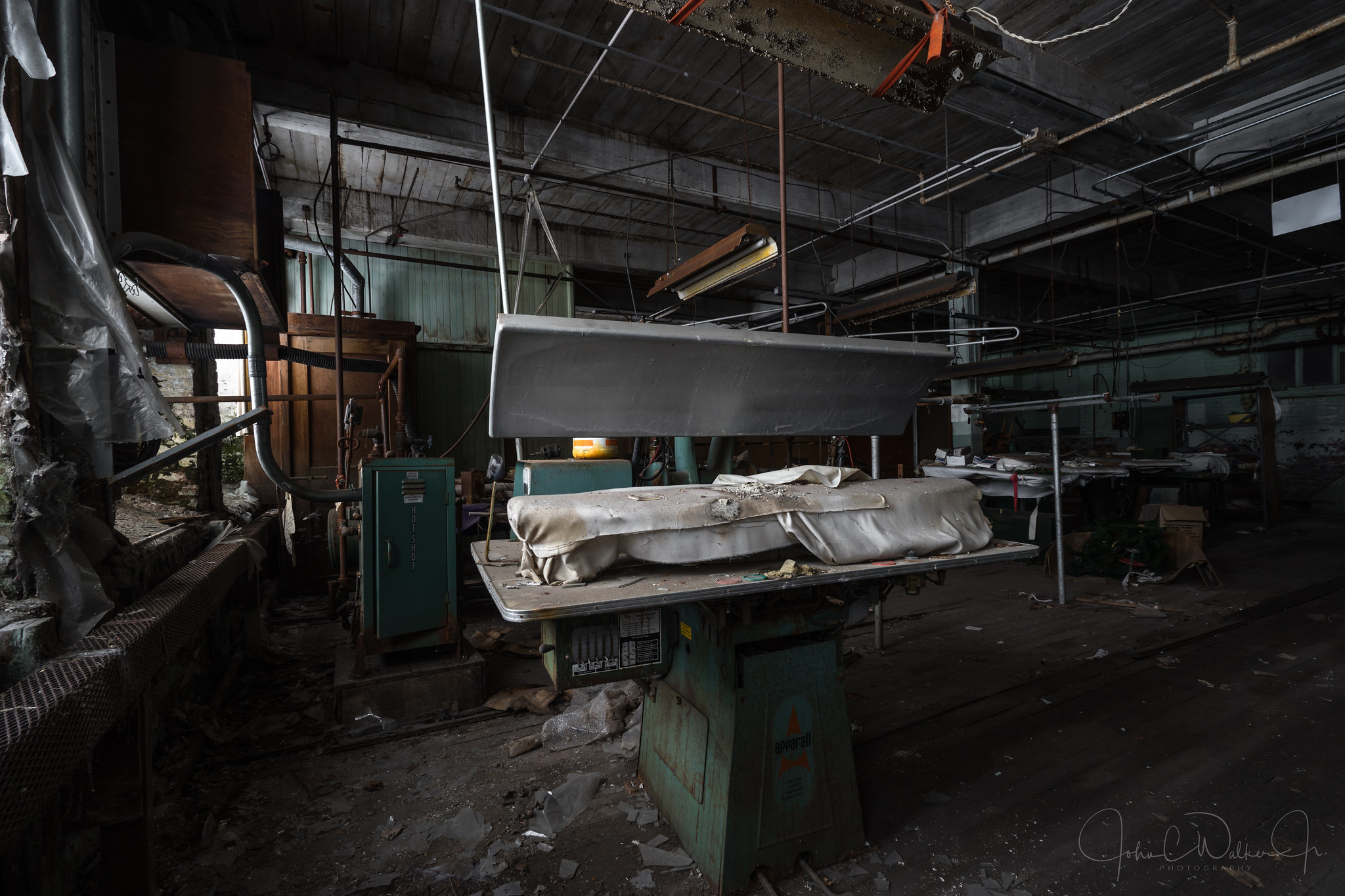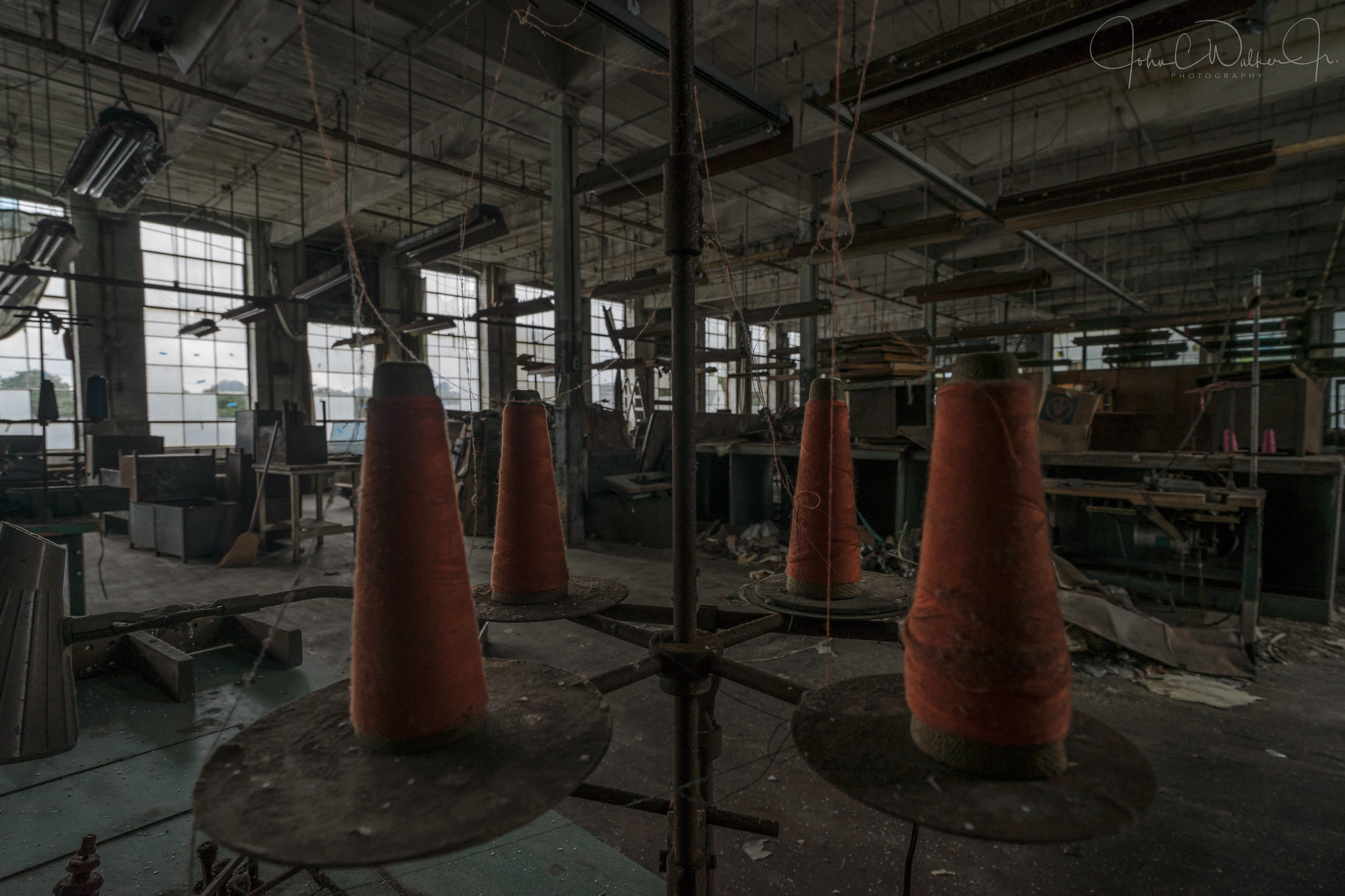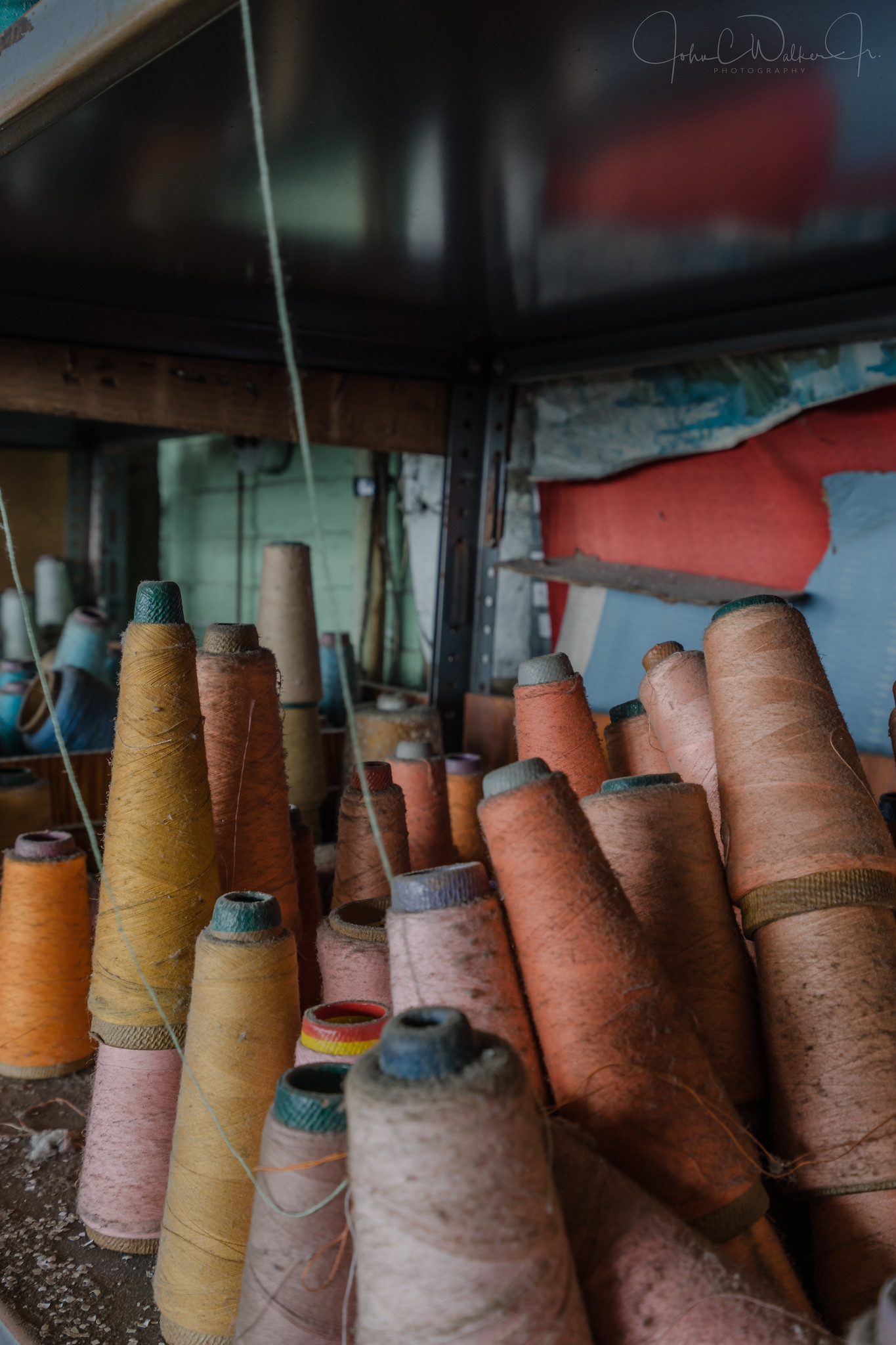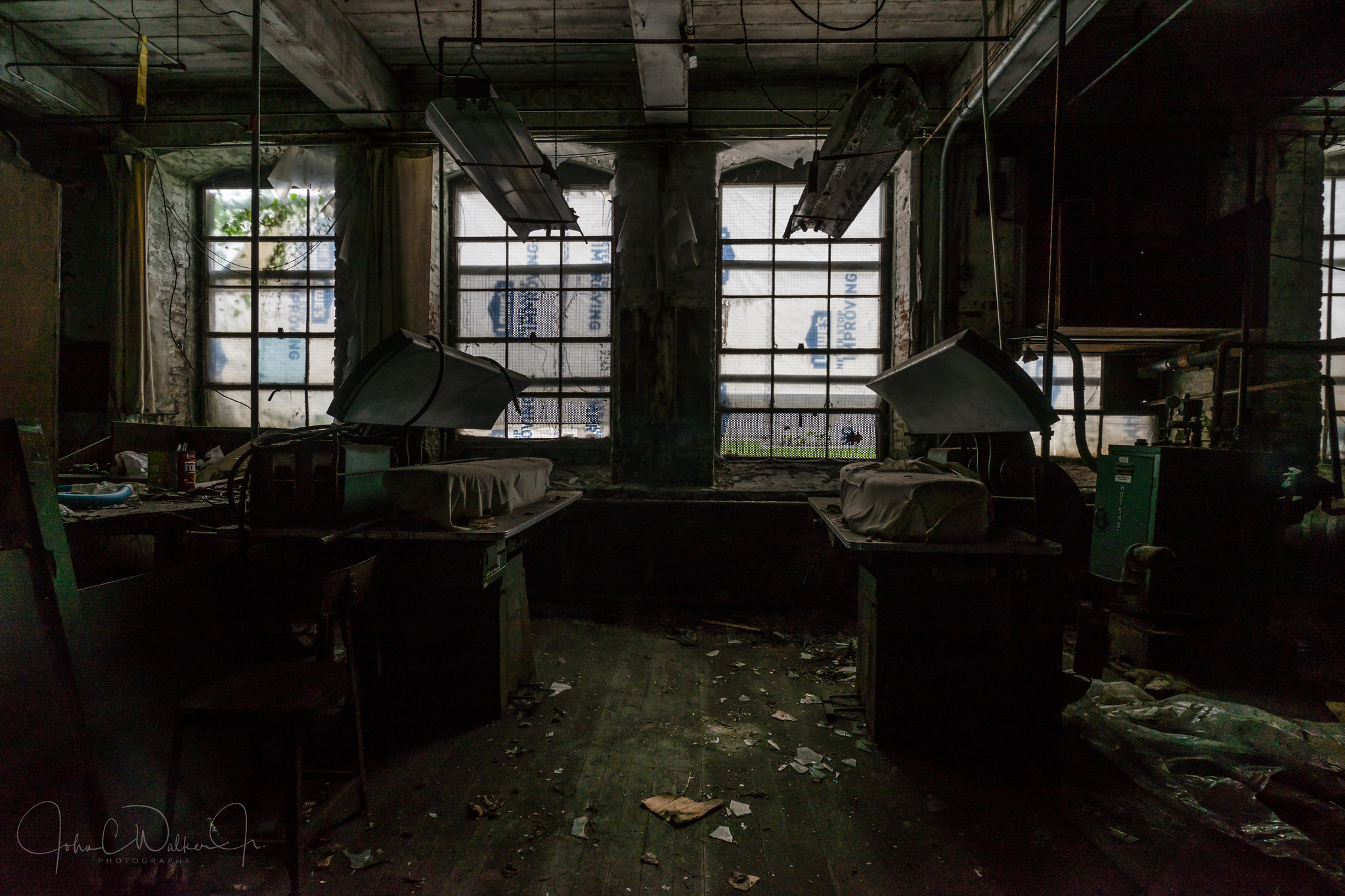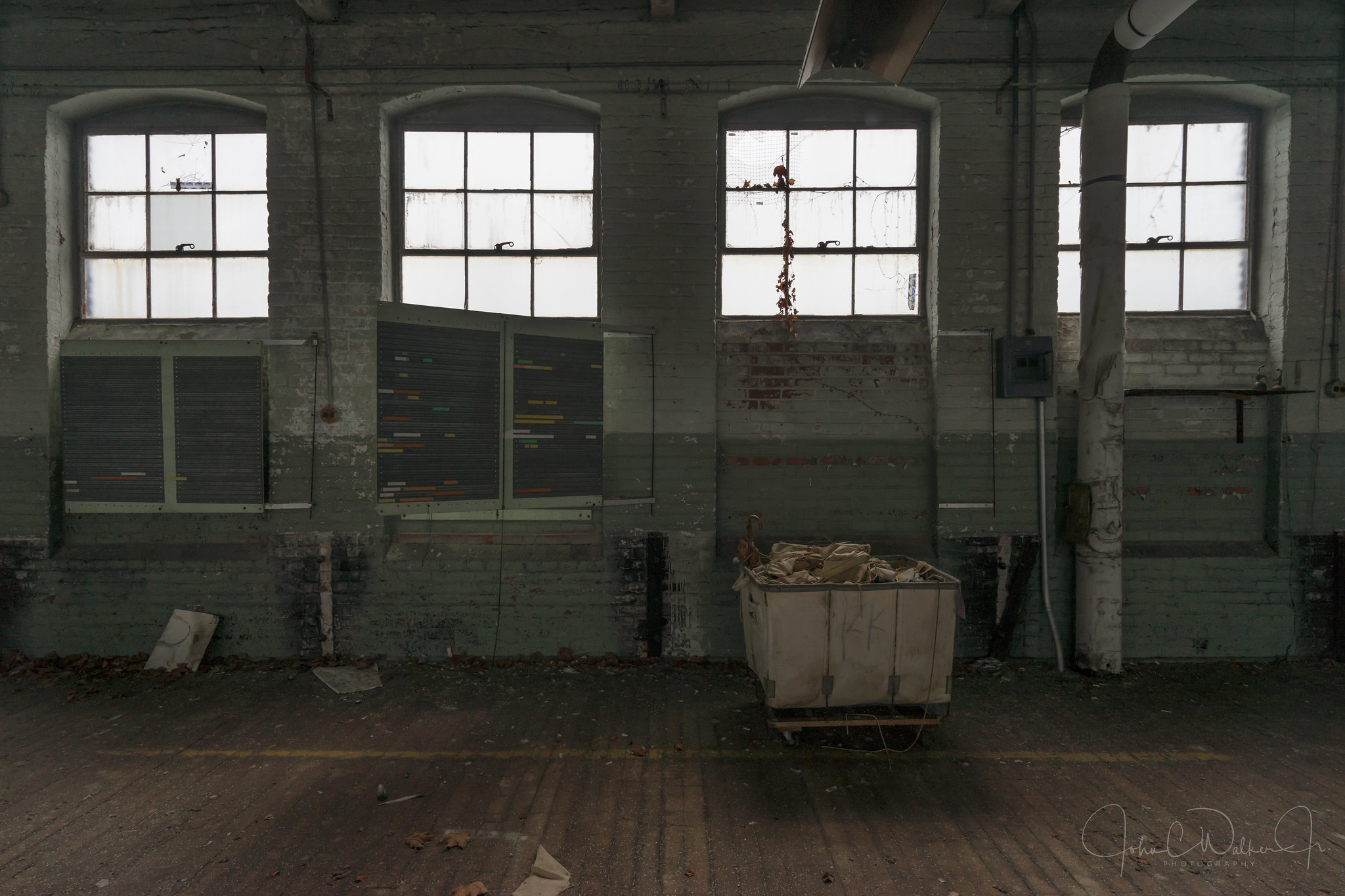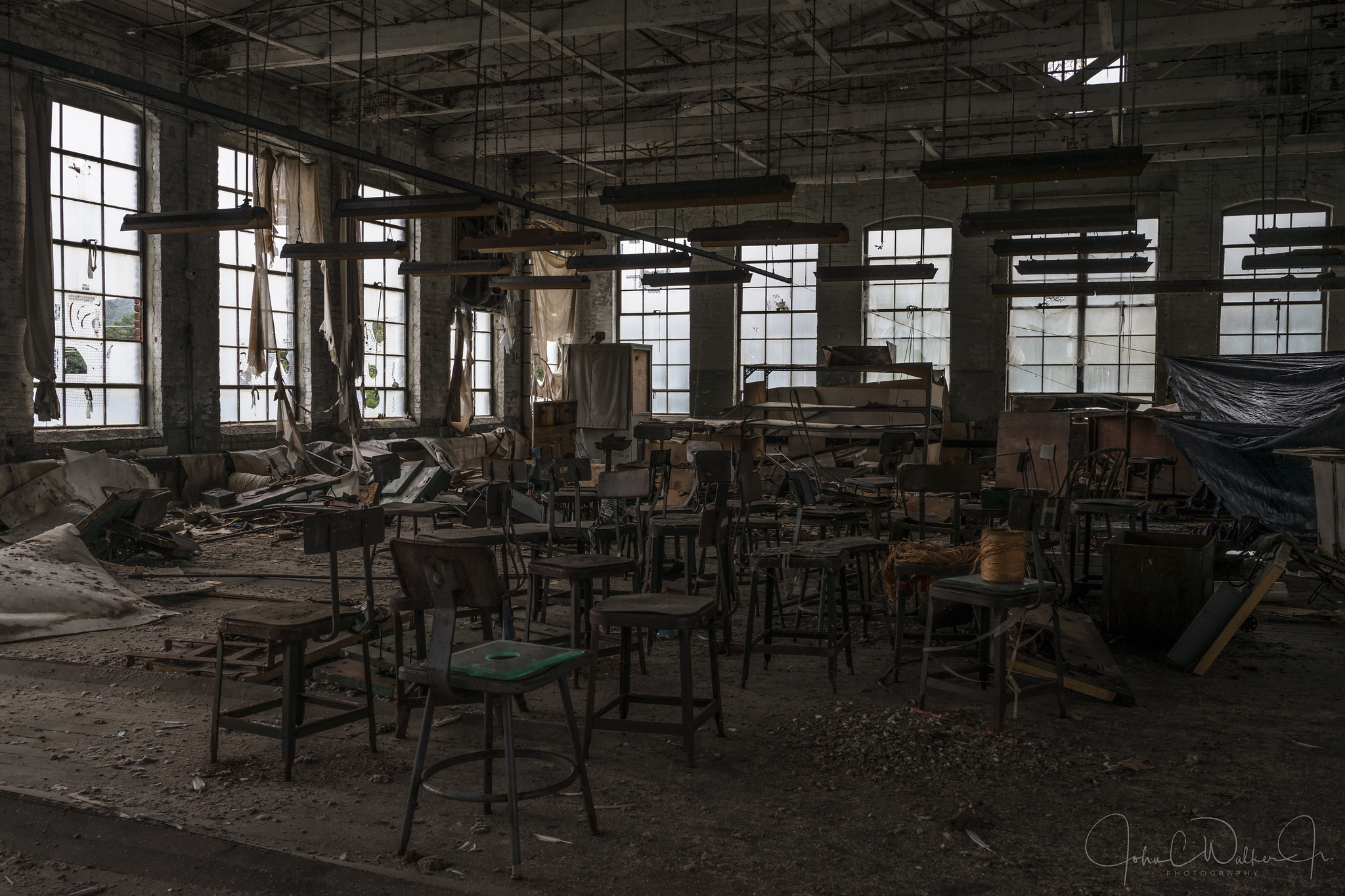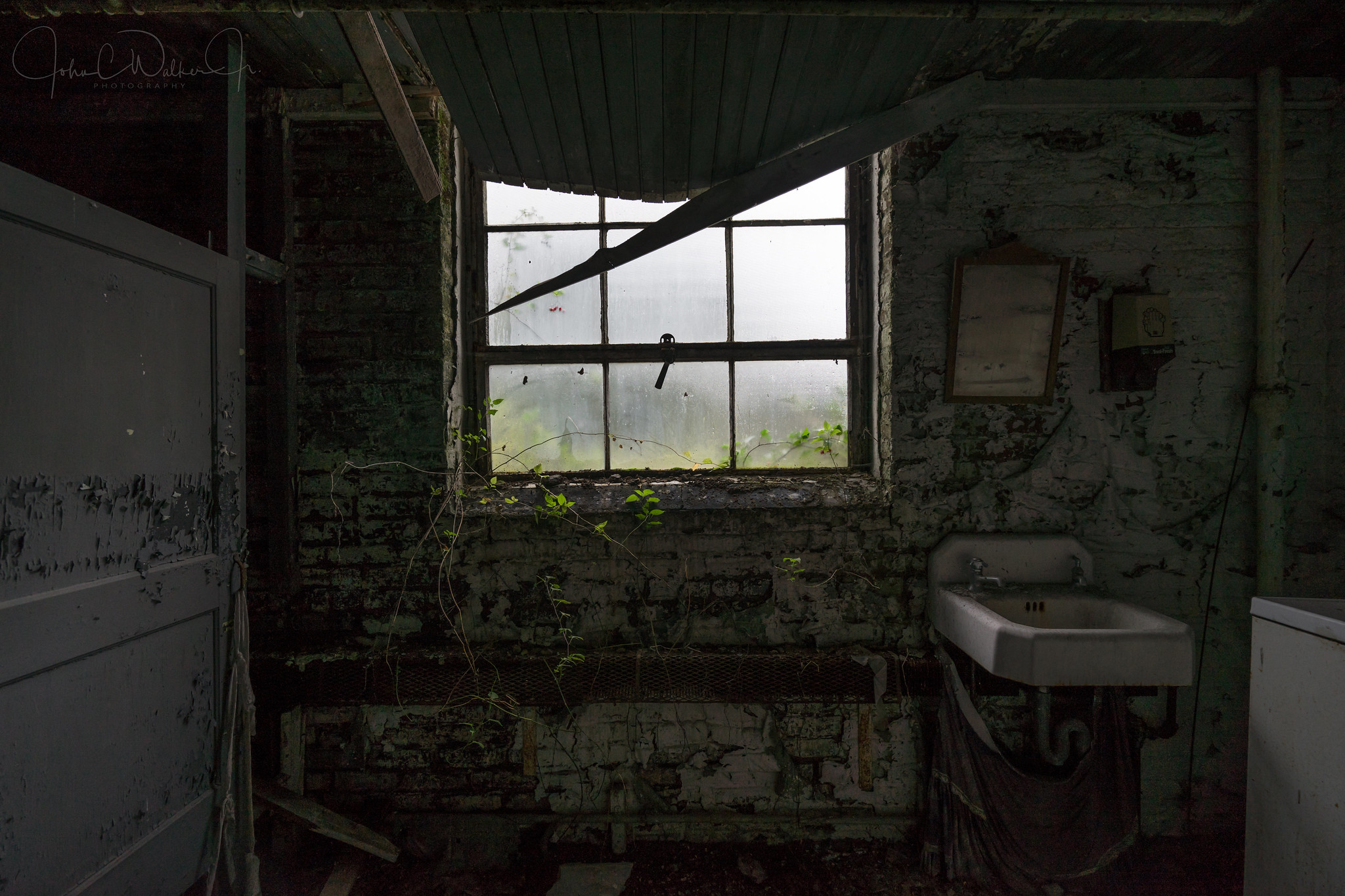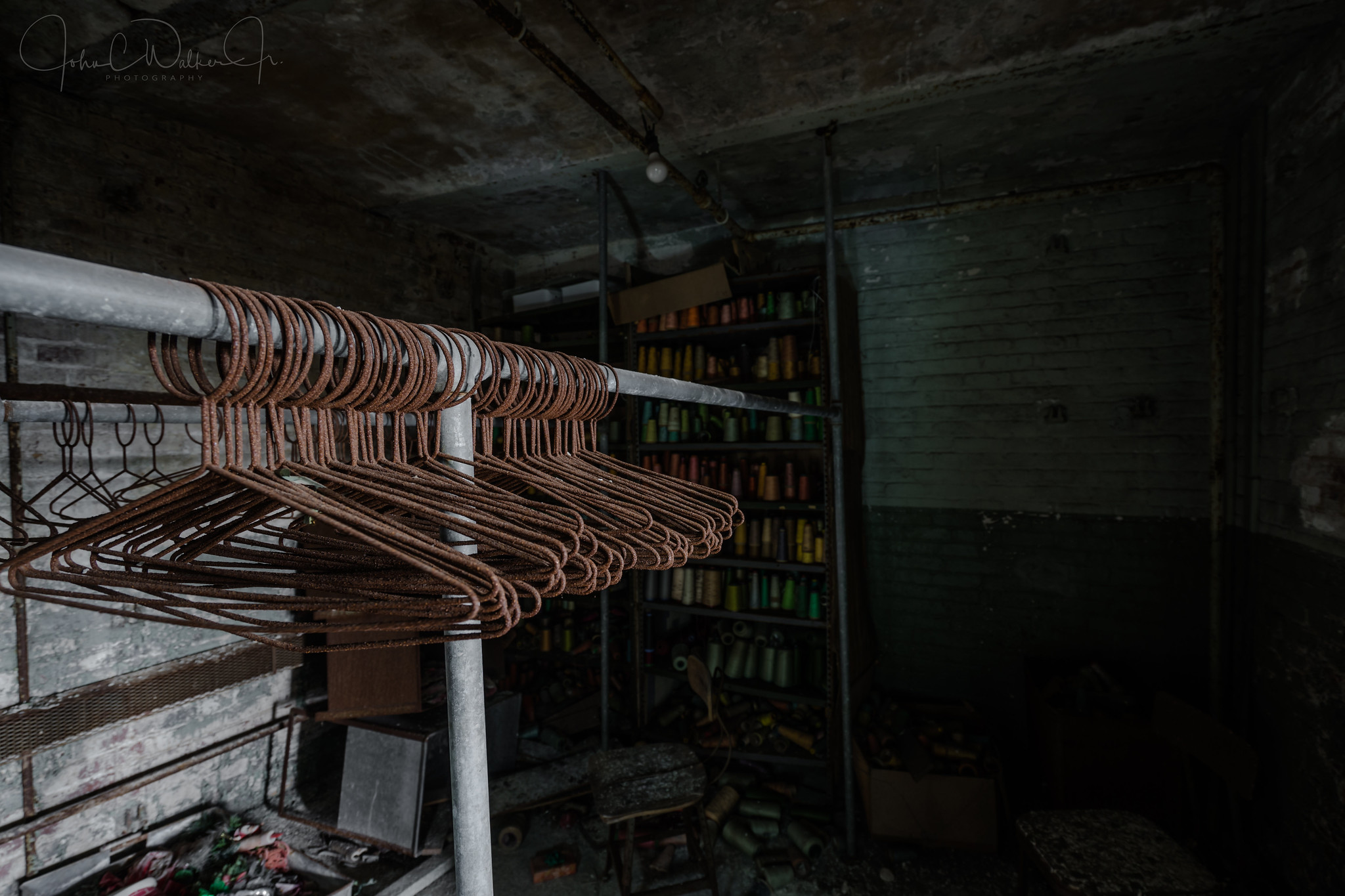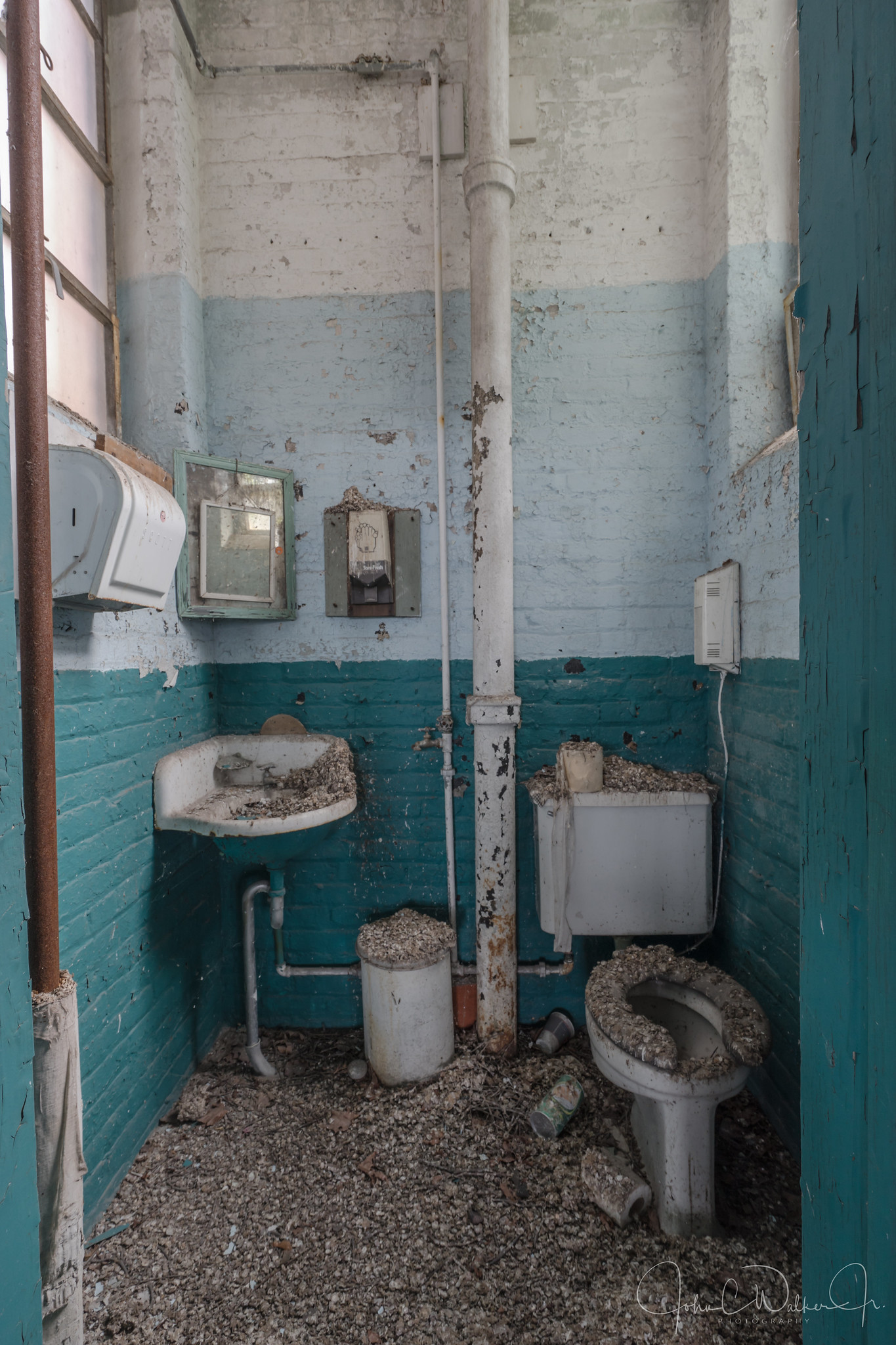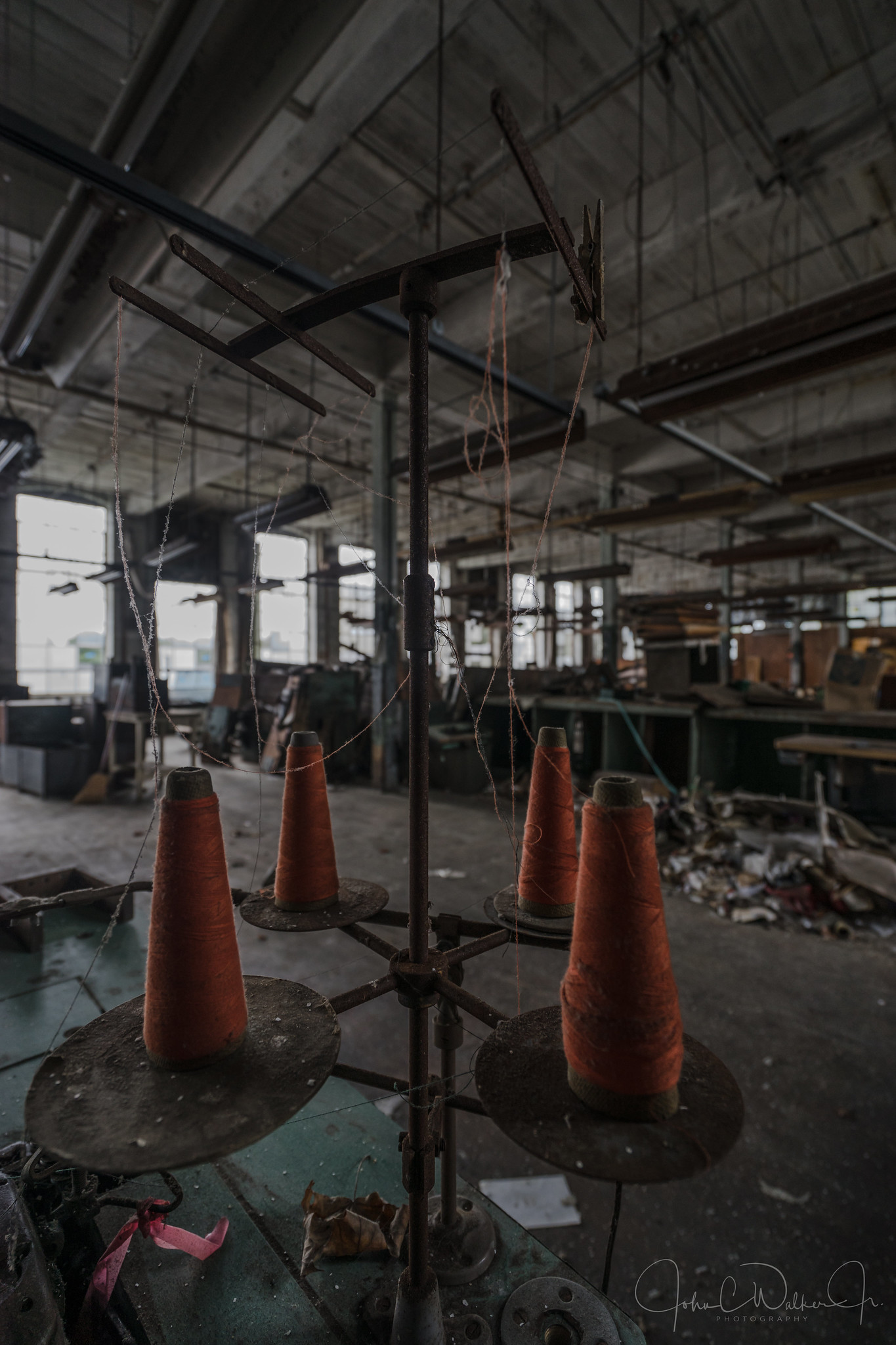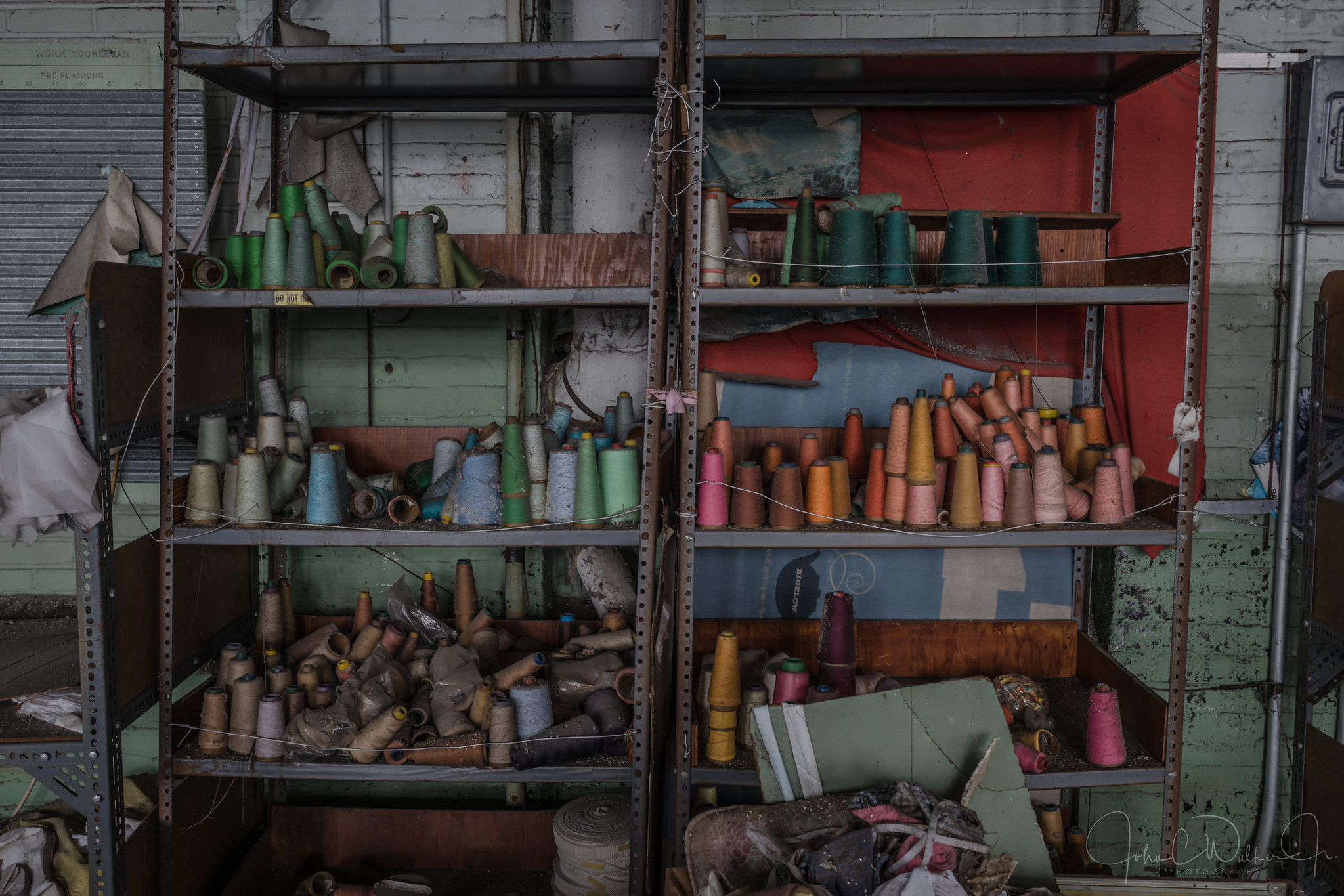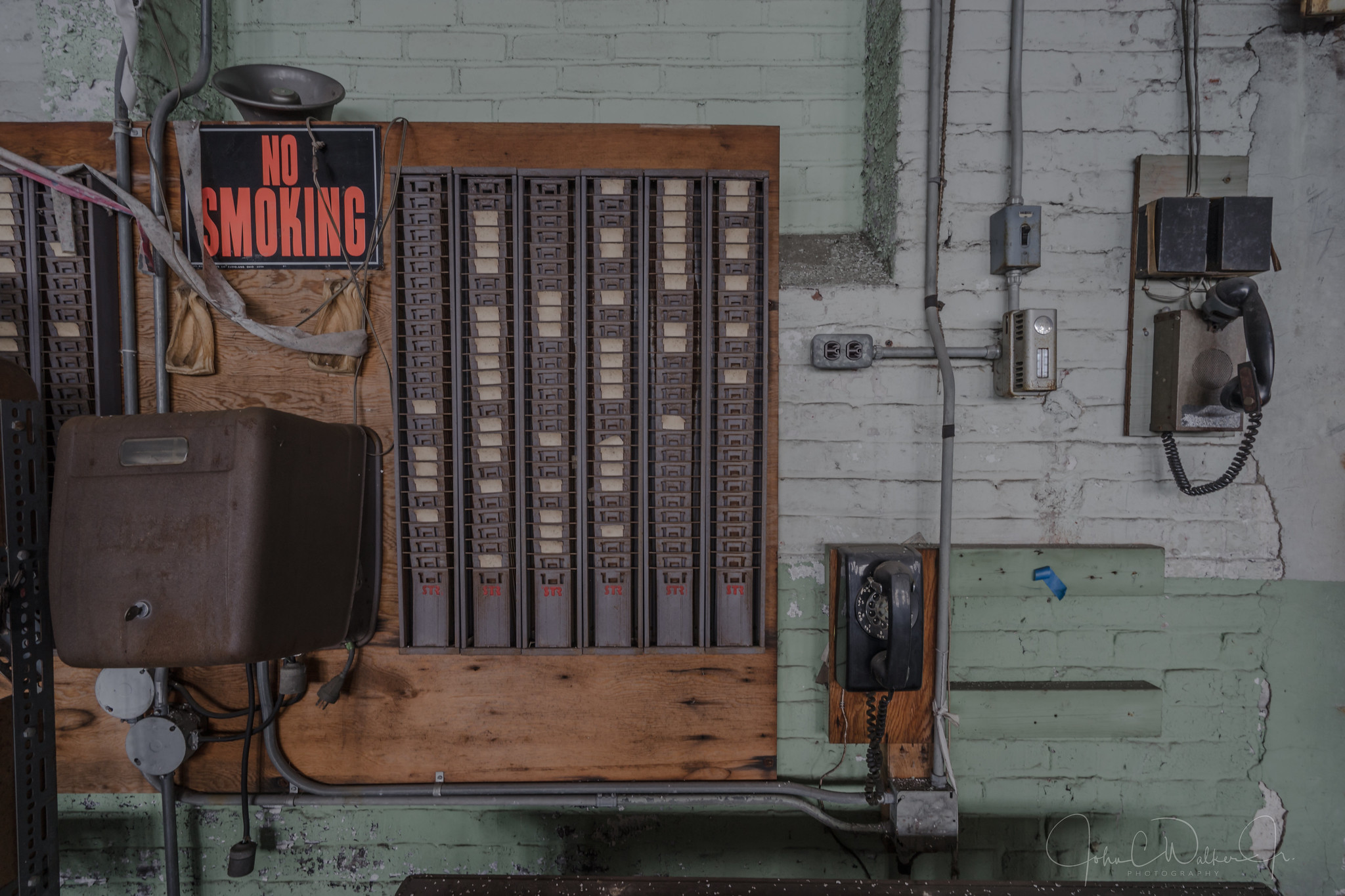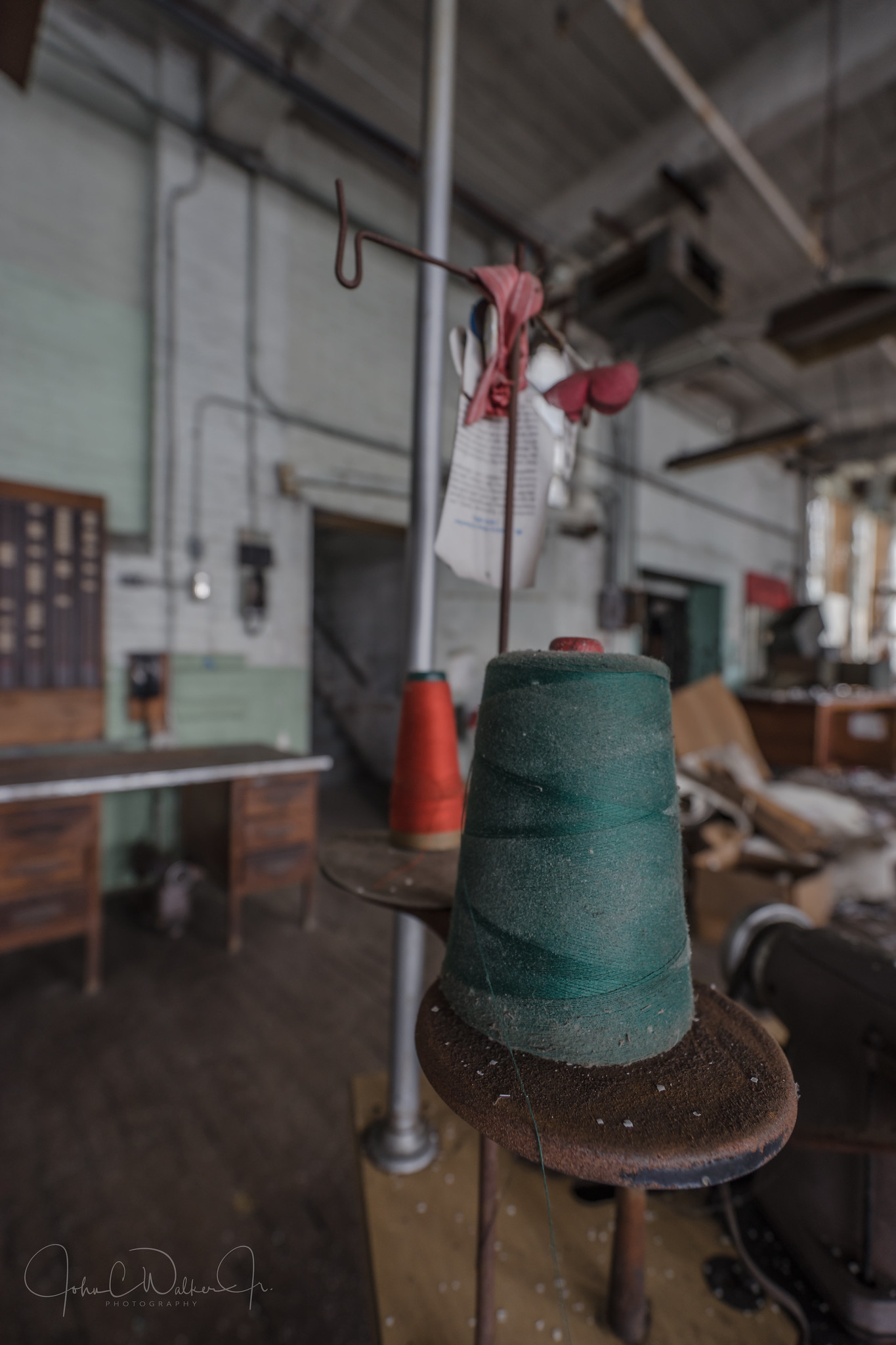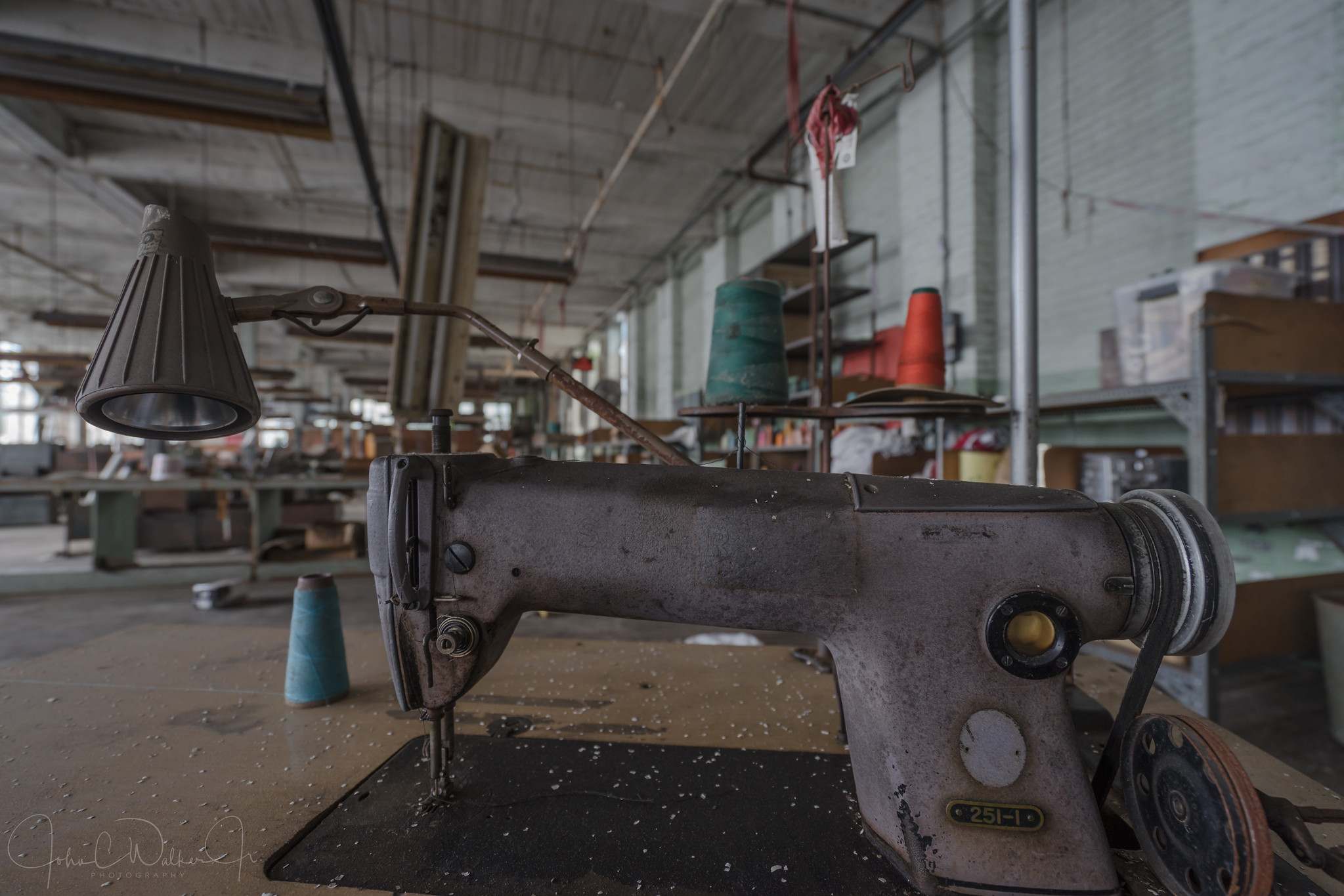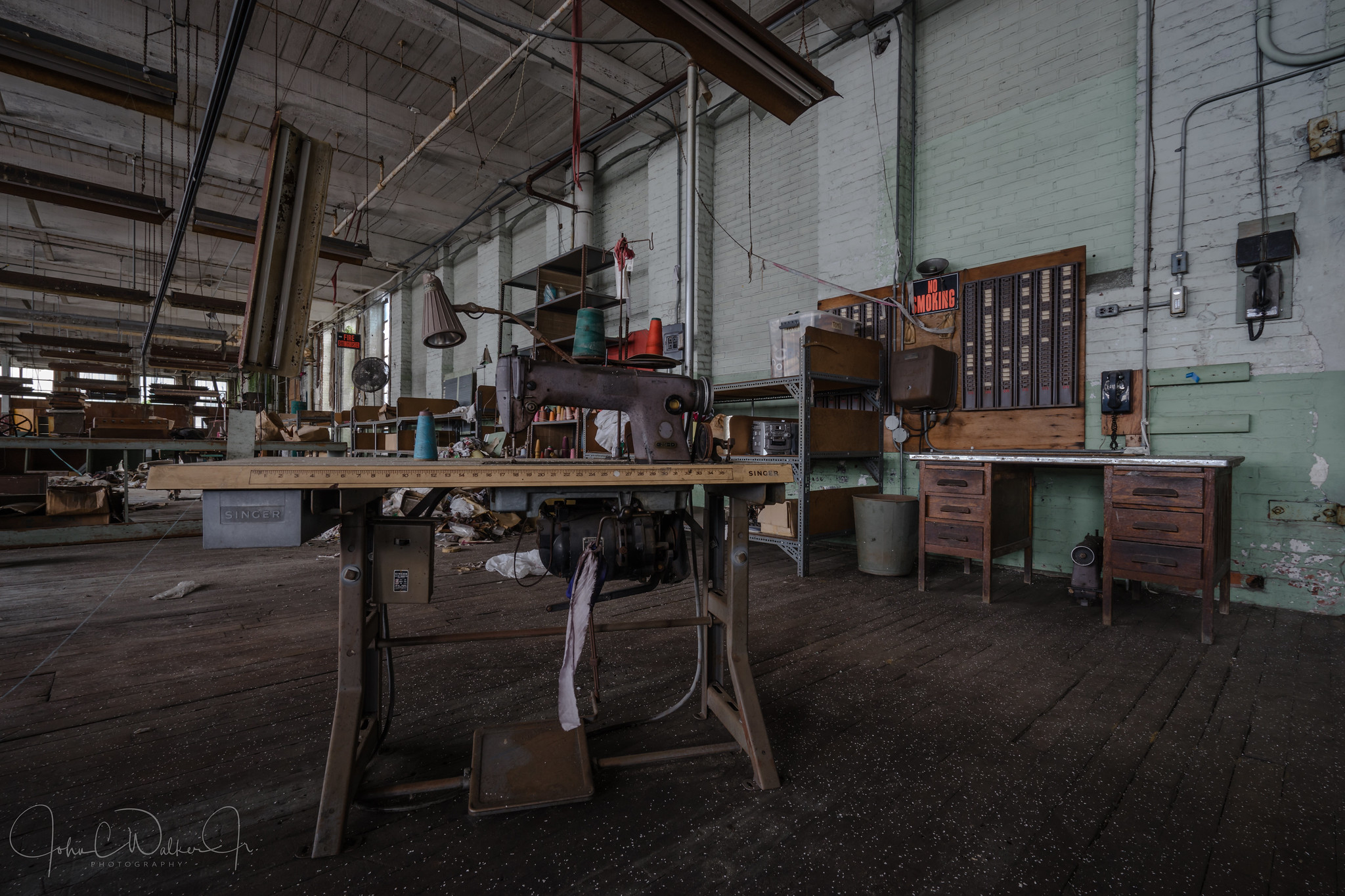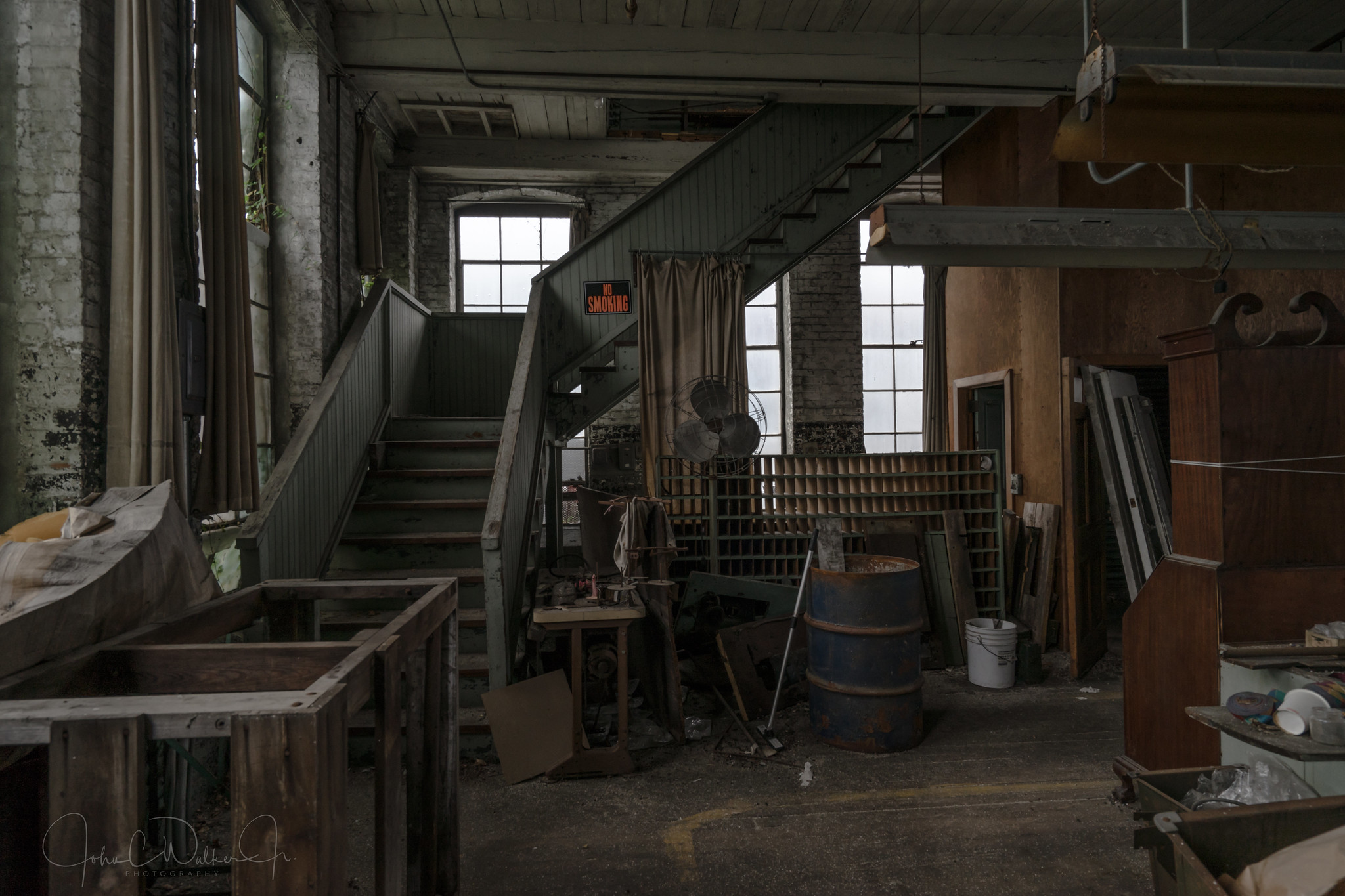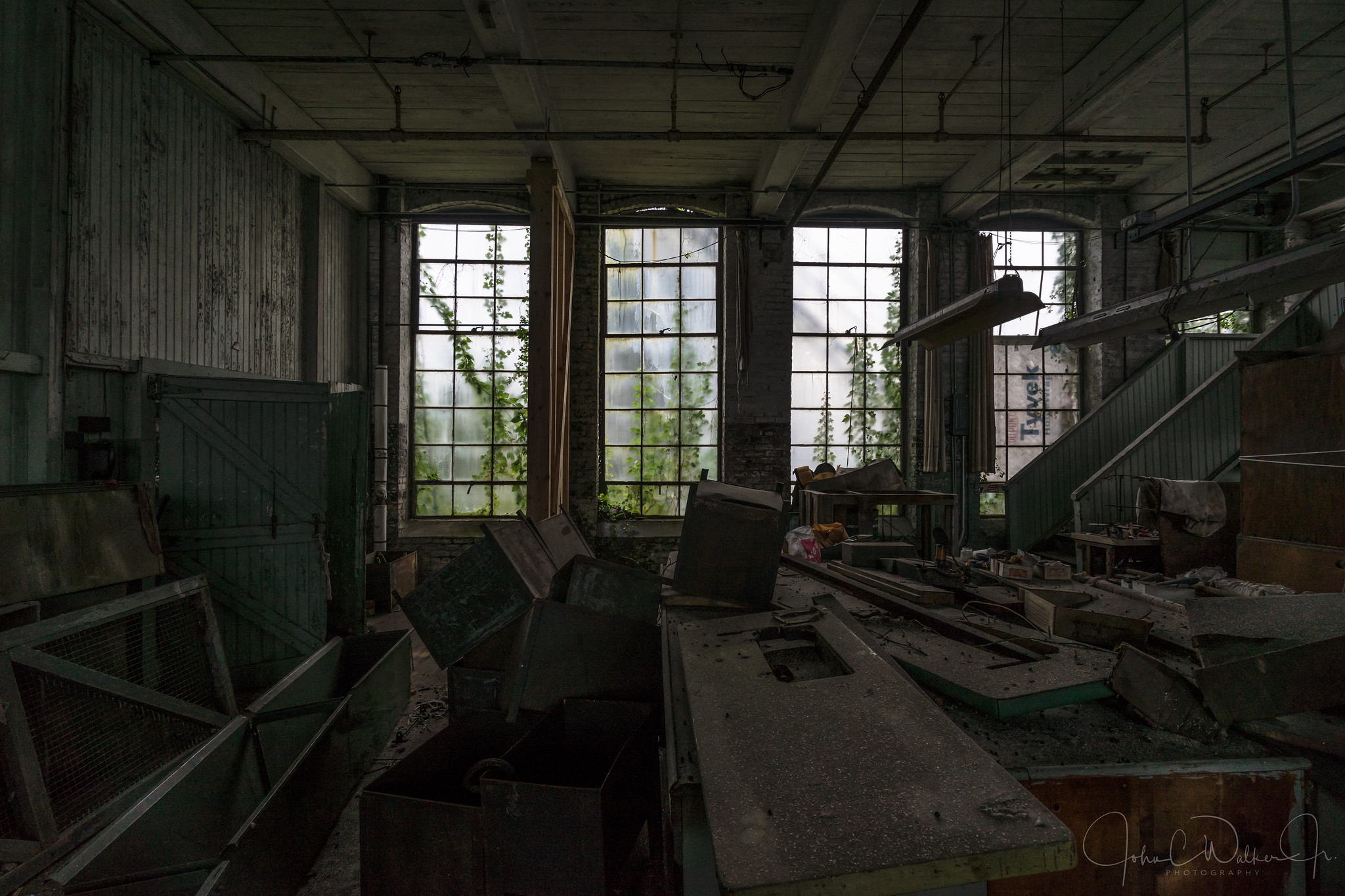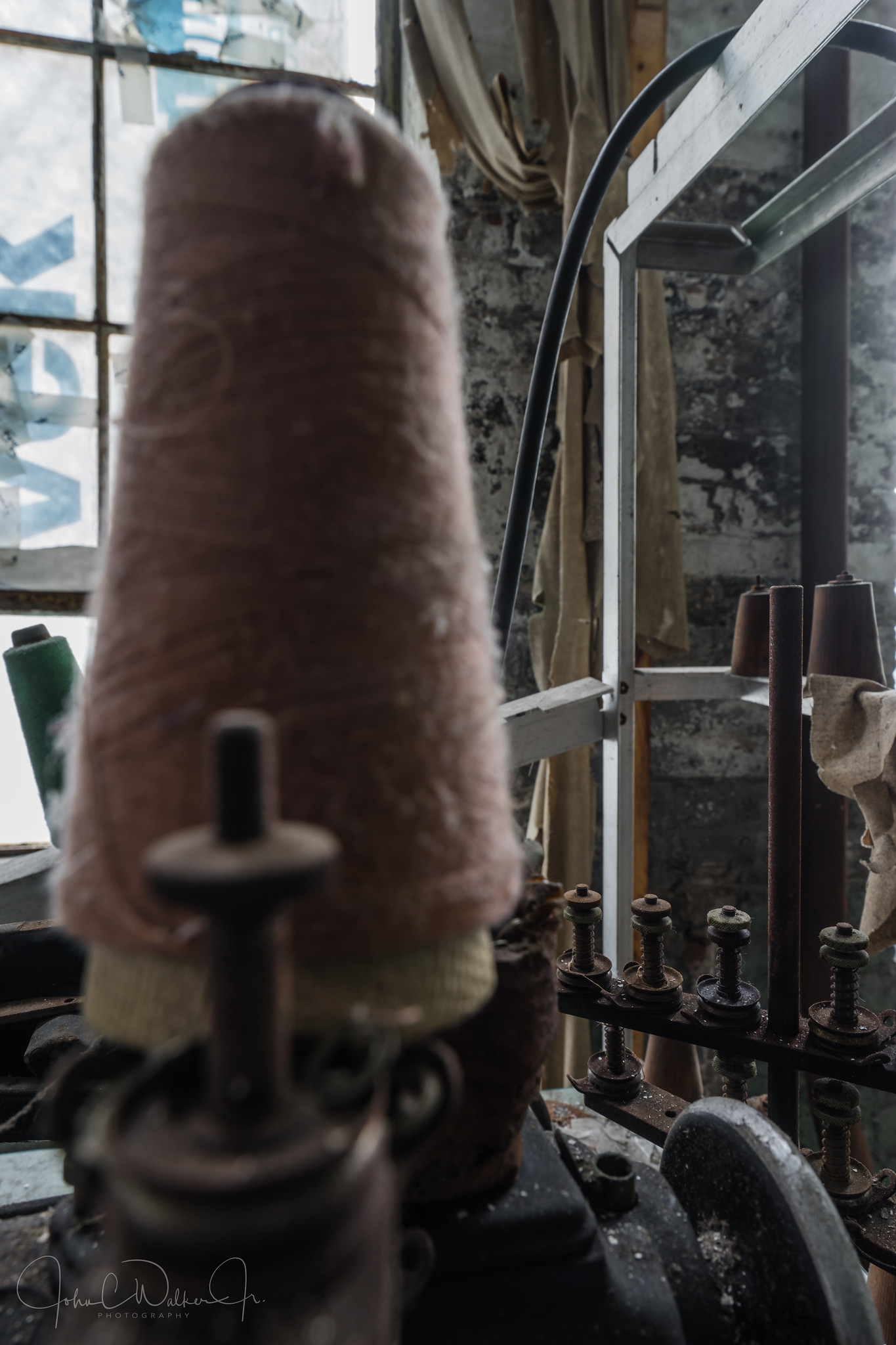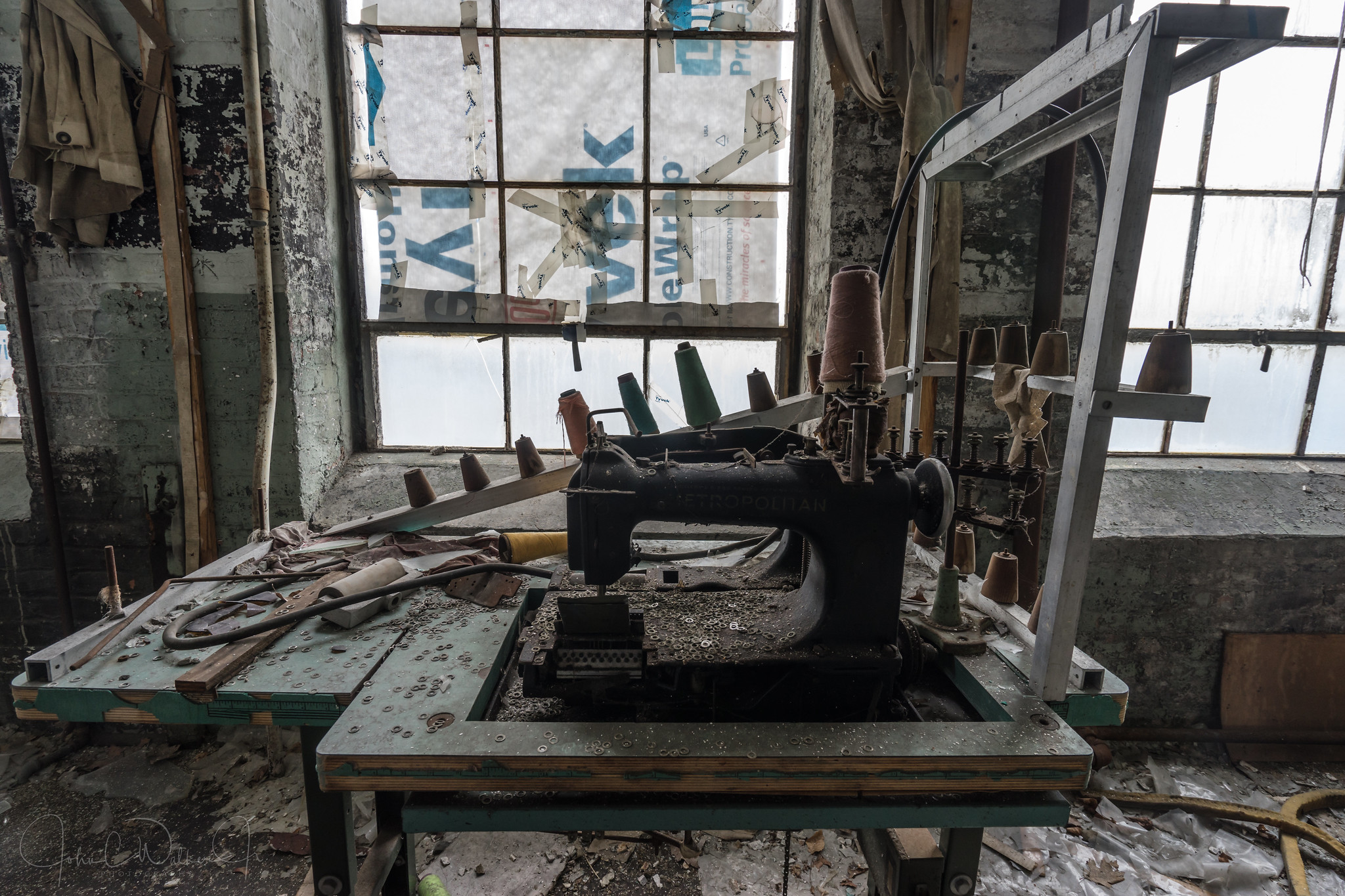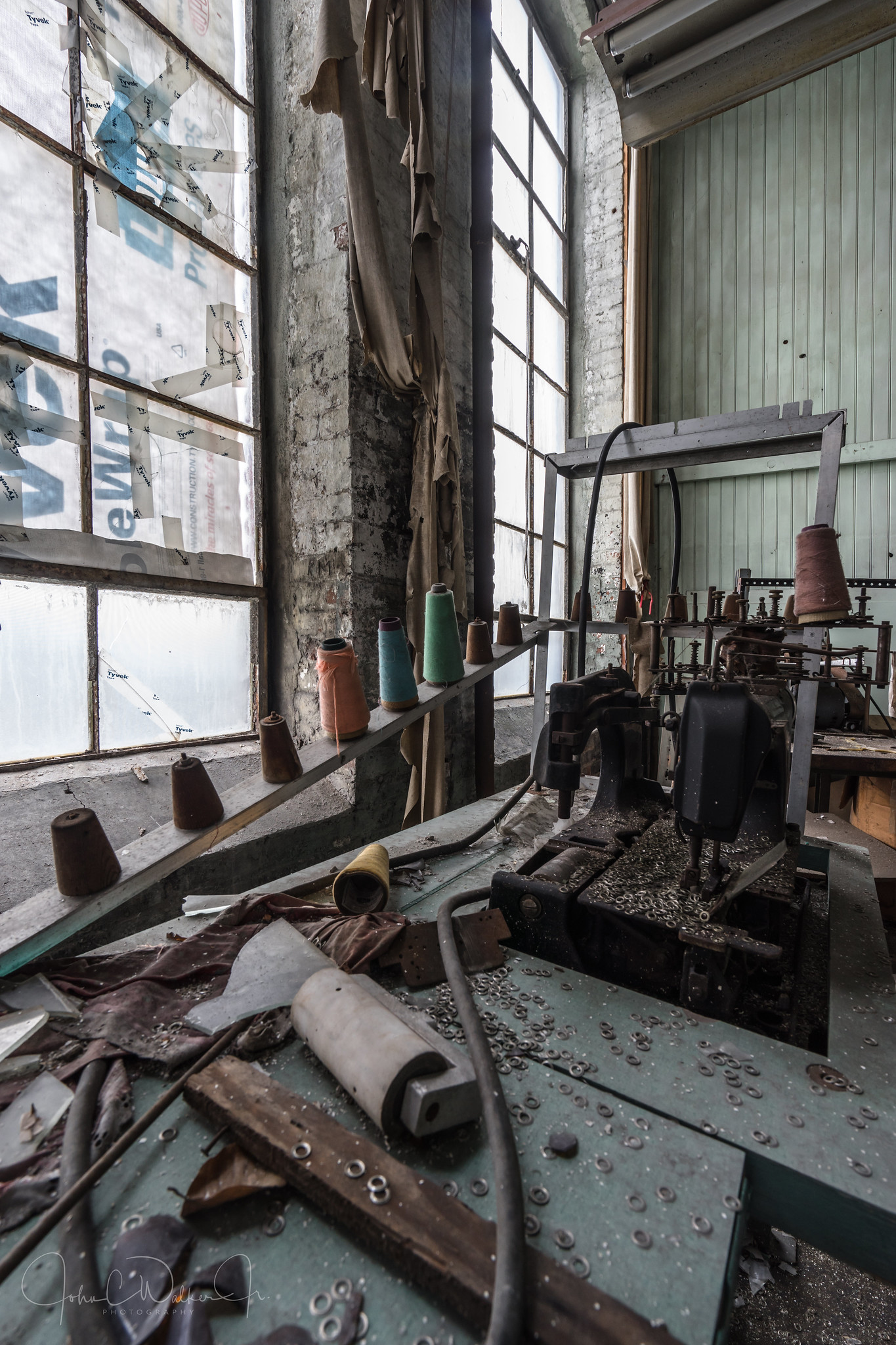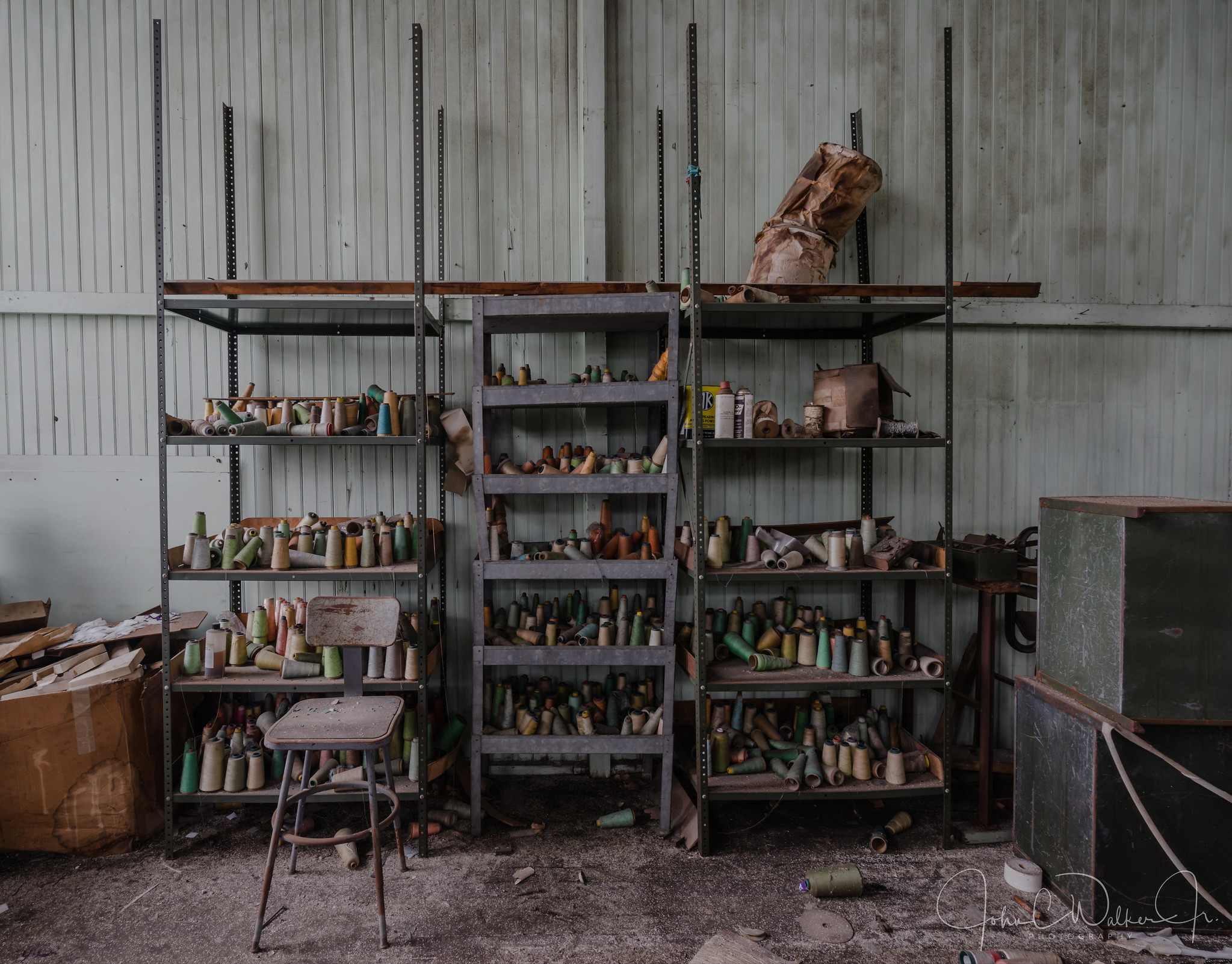John Wilde and Brother, Inc., remains as a
family owned woolen carpet yarn mill in continuous operation at this location
since 1884, giving it the distinction of the oldest American carpet yarn
company still in existence. The complex of three
buildings stands at the lower end of Manayunk, once a part of an industrial
landscape that included the Pencoyd Iron Works, later the American Bridge
Company, and the Wissahickon Plush Mill. Surviving as the last of these, the
Wilde mill now serves as the gateway to Manayunk from the south, as proclaimed
in the sign painted on the Main Street mill.
In 1882 brothers John and Thomas
Wilde started the construction of a mill on Cresson Street near the
intersection of Ridge Avenue. This
effort came two years after they had purchased two sets of cards and a mule,
and had begun a carpet yarn business, spinning wool on the fifth floor of S.S.
Keely's Enterprise Mill. The
Wilde's new mill, oriented toward Cresson Street, bares a significant
resemblance to the pattern of mill construction prevalent throughout Manayunk
toward the end of the nineteenth century. With its rubble stone walls and red
brick trim, the mill follows the type built by S.S. Keely. Having been tenants
of Keely,it appears likely that he would have constructed
their mill. When completed two years later, the date 1884 was laid into the
brickwork of its smoke stack where it is still clearly visible from Ridge
Avenue.
The process of spinning carpet yarn from wool stock has not changed much
over the years, with the exception of the introduction of labor saving devices
and the evolution of improvements to those machines. At
John Wilde and Brother the acquisition of such machines led, in part, to the
expansion of the mill. In 1932 the reinforced concrete and brick mill on Main
Street was constructed down the rocky hillside from the earlier mill. Its
structural system required fewer interior piers which resulted in more open
space to accommodate larger, more modern machinery. Presently this mill houses
the carding, twisting, spinning, and winding machinery. The carpet yarn process
at the Wilde mill currently takes place in three buildings, the last one added
in 1983; designed by Reshetar Architect, Inc., the reinforced concrete
structure embellished with terra cotta tile, stands atop a rubble rock
foundation (of the earlier Wissahickon Plush Mill) next to the first mill and
serves as a warehouse.
Bales of scoured wool from a variety of world markets
arrive at the Wilde mill and are delivered to the warehouse, maintaining the
inventory necessary to anticipate and fill its orders. From
there the bales are fork-lifted into the top floor of the 1884 mill for
blending. As much of the finish product of the mill consists of natural colored
yarns, an assortment of wools makes up the inventory. The technique of blending
the various colors achieves the distinction in the yarns. On this same floor
six large Lumming feeding machines combine different types of wool to make a
homogeneous blend layers, or the blended wool. Next the wool travels to a
baling machine. Forced air blows it down to the floor below where it is
compressed, strapped and stored as bales. To insure a good blend, the wool is
put through this process three times. On one of the passes, a lubricant is
added to aid in the processing and a pre-carder opens the fibers in preparation
for carding.
The spinning of a customer's order begins when the bales leave the
old mill and slide on an enclosed incline down the hillside between the two
mill buildings, landing near the carding machines. Situated on the top floor of
the new mill, six large Davies and Ferber carding machines use toothed rollers
to comb the fibers of the wool straight. With accurate measuring devices these
machines weigh the raw wool before carding to establish the size of the
finished yarn. The
product of carding, called roving, looks like finished yarn but has no twist
and no strength. Wound on large spools, the roving leaves this floor for the
one below where it is placed on continuous ring spinning machines to add the
twist. The machines stretch and twist the roving as it is wound onto smaller
bobbins. Twisting machines fitted with several bobbins of different yarns twist them together to achieve
the desired number of ply. The Wilde Mill has a Saco-Lowell overhead
creel-twisting machine on the second floor of the newer mill and Whitin
twisting machines on the ground floor of the same mill. The final process
before shipping, involves moving the finished yarns on a winding machine from
the mill’s wooden bobbins onto paper cones or tubes for shipping and use by the
customer.
Two other machines, which survive from earlier days of
textile production are still in use here. A picker, used for picking spun yarn,
returns it to the appearance of the raw wool. This mill uses the picker for its
small pieces of yarn called hard waste. The other machine, a willow or duster,
removes short unusable fibers from waste known as fly, also returning it to
pre-combed wool. Both the willow and the pickers were manufactured by
W.M. Schofield of Manayunk and patented in 1929.
John Wilde and
Brother, Inc. and Robert Krook, Inc., 4120 Main Street, survive in Manayunk
among the stiff competition of corporate giants, paralleling the recent history
of industry in America. Within the last twenty years in Manayunk, six yarn
mills have closed, the last, Blankin Yarn Company, as recently as two years
ago.
History Found Here.
